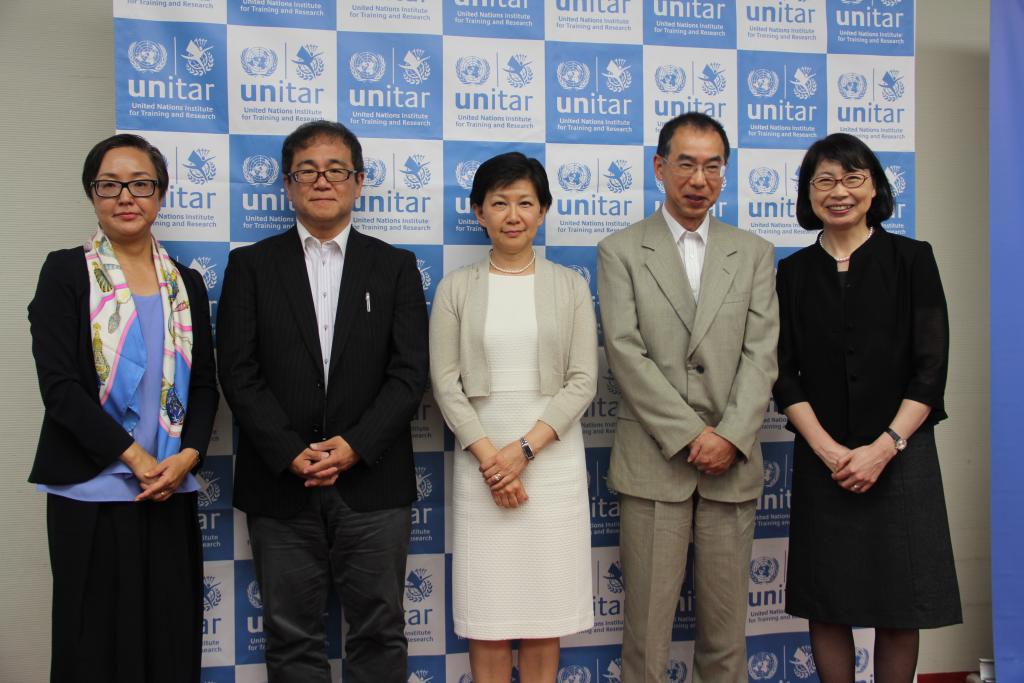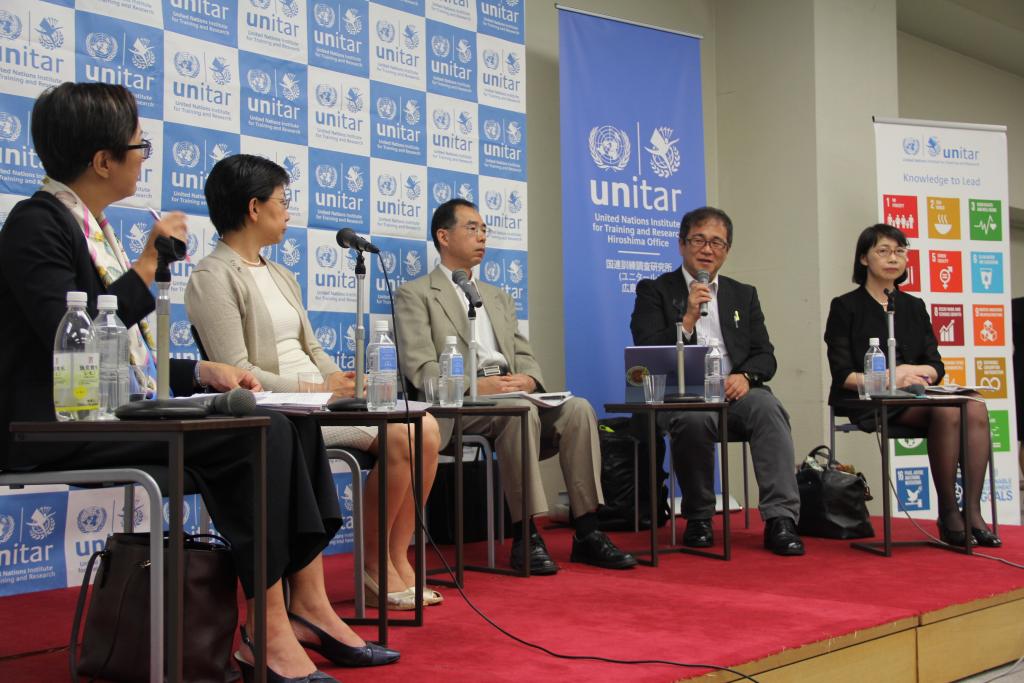Disarmament Panel Discussion Held in Hiroshima

6 August 2018, Hiroshima, Japan - As the first event of the UNITAR Hiroshima Office's Ideas that Matters series, UNITAR and the UN Office for Disarmament Affairs (UNODA) held a panel discussion focusing on fields of disarmament covered in the UN’s new Agenda for Disarmament. The Ideas that Matter series is part of the Hiroshima Office's celebrations for its 15-year anniversary. The panelists were specialists in various fields of disarmament, and they provided listeners with a wide-ranging and engaging discussion.
The panelists were:
- Ms. Izumi Nakamitsu, UN Under-Secretary-General and High Representative for Disarmament Affairs
- Mr. Masahiko Asada, Professor at Kyoto University
- Mr. Heigo Sato, Professor at Takushoku University
- Ms. Yukie Osa, Professor at Rikkyo University
Discussion began with a short presentation from each panelist on their area of expertise. In her presentation, Ms. Nakamitsu explained the main areas of the UN’s new Agenda for Disarmament, which include disarmament for weapons of mass destruction (WMD), conventional weapon, and emerging technologies, as well as building partnerships to promote disarmament. She stressed that the Agenda includes many practical suggestions for what governments and other actors can do to promote disarmament. In terms of nuclear weapons, Ms. Nakamitsu mentioned that as technology advances, nuclear weapons are being modernized and downsized, which lowers the barrier to use -- a deeply troubling development. Finally, Ms. Nakamitsu stressed that although women have been active in disarament for a long time, it is still necessary to promote their full participation at all levels of disarmament decision-making.
Professor Sato spoke about the field of emerging technologies and how experts are concerned about the potential for misuse. There is debate as to what kind of regulations should be put in place for emerging technologies, so that they are not weaponized and cause great harm to people and governments. This field of disarmament is not simple, because many emerging weapons technologies still do not exist, and therefor their impact cannot be fully understood. Professor Sato stressed the difficult but important balance between developing technologies to improve livelihoods while protecting them from misuse.
 In his talk, Professor Asada spoke about WMD disarmament. He summarized the current global situation of nuclear disarmament and raised questions about the current multilateral approach. He wondered how to bridge the gap between nuclear nations, those under their nuclear umbrellas, and states supporting the Treaty on the Prohibition of Nuclear Weapons, which was adopted in July 2017. Professor Asada also spoke about the recent use of chemical weapons in Syria, which have been reportedly used 34 times by the Syrian government, ISIS, and other groups.
In his talk, Professor Asada spoke about WMD disarmament. He summarized the current global situation of nuclear disarmament and raised questions about the current multilateral approach. He wondered how to bridge the gap between nuclear nations, those under their nuclear umbrellas, and states supporting the Treaty on the Prohibition of Nuclear Weapons, which was adopted in July 2017. Professor Asada also spoke about the recent use of chemical weapons in Syria, which have been reportedly used 34 times by the Syrian government, ISIS, and other groups.
Professor Osa discussed that while weapons of mass destruction are often owned by governments, conventional weapons such as landmines, fighter jets, and missiles are also used by non-state affiliated parties and guerrilla groups. Treaties can only limit weapons usage by states but not by unaffiliated actors. Professor Osa introduced an organization called Geneva Call, which offers a new solution to that issue: Instead of a treaty, the organization created a "Deed for Commitment" to involve the non-state affiliated parties to make efforts in landmine disarmament.
The UNITAR Hiroshima Office would like to thank UNODA for their collaboration, all the panelists for their rich disucssion and insights, and everyone who attended the event. It was an honor to hold this panel discussion on 6 August, the memorial day of the atomic bombing of Hiroshima. UNITAR hopes to continue to contribute to the discourse and action around disarmament in the future.
Photos: Discussion Panelists

